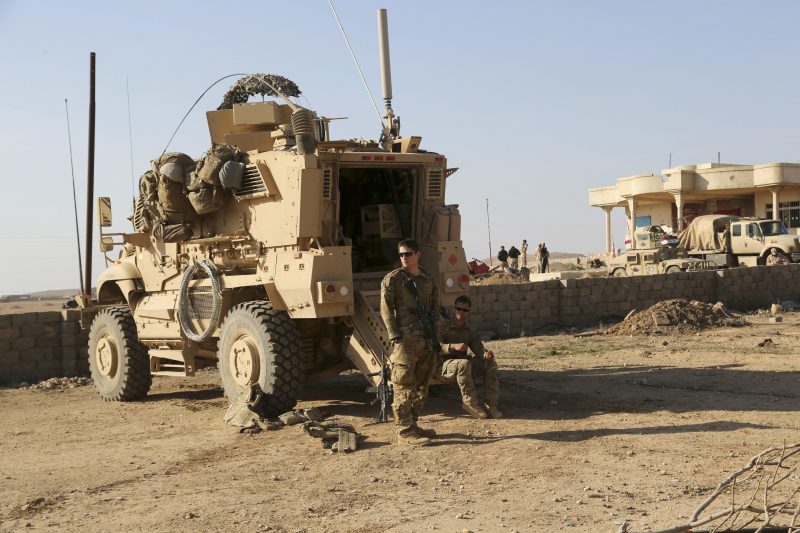The recent developments regarding the U.S. troop presence in Syria have drawn attention and sparked discussions within international circles. The decision to maintain troops in Syria, despite talks of a potential withdrawal, reflects the strategic importance that the U.S. places on the region in maintaining stability and curbing terrorism.
The U.S. government’s assertion that troops will stay in Syria is a clear signal of its commitment to supporting its allies and combating extremist groups such as ISIS. With the rise of ISIS in Syria and Iraq in recent years, the U.S. has played a crucial role in leading the coalition against the terrorist organization. The presence of U.S. troops in Syria acts as a deterrent against the resurgence of ISIS and other extremist groups, ensuring that the gains made in the fight against terrorism are not lost.
Moreover, the decision to keep troops in Syria also serves as a message to other regional actors, particularly Iran and Russia, that the U.S. remains engaged in the region and is prepared to protect its interests. The ongoing conflict in Syria has drawn in various international players, each with their own agendas and objectives. By maintaining a military presence in Syria, the U.S. can exert influence and shape the trajectory of the conflict in a way that aligns with its strategic goals.
While the U.S. downplays talks of a complete withdrawal from Syria, it is essential to recognize the complexities and challenges associated with maintaining a military presence in the region. The Syrian conflict is multifaceted, involving various regional and international actors with diverging objectives. The presence of U.S. troops in Syria risks entanglement in the complex web of alliances and conflicts that define the region, potentially leading to unintended consequences.
Furthermore, the decision to keep troops in Syria raises questions about the long-term strategy of the U.S. in the region. As the conflict in Syria continues to evolve and new challenges emerge, it is crucial for the U.S. to have a clear and coherent strategy that outlines its objectives and delineates its role in the region. Without a comprehensive strategy, the U.S. risks being dragged into prolonged conflicts and facing backlash from local populations and international actors.
In conclusion, the U.S. government’s decision to maintain troops in Syria signals its commitment to combating terrorism and supporting its allies in the region. While the presence of U.S. troops serves as a deterrent against extremist groups and sends a message to other regional actors, it also raises questions about the long-term strategy of the U.S. in the region. Moving forward, it is imperative for the U.S. to have a clear and coherent strategy that guides its actions and ensures that its interests are protected while minimizing risks and unintended consequences.
